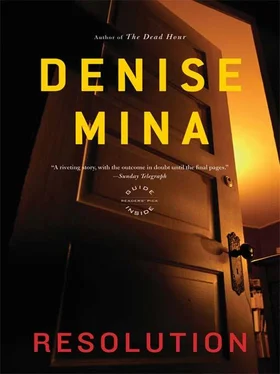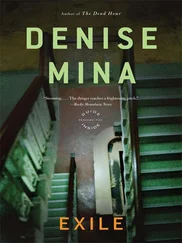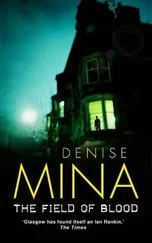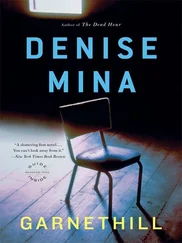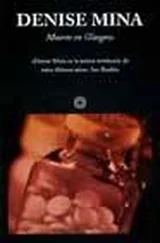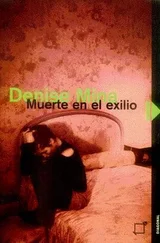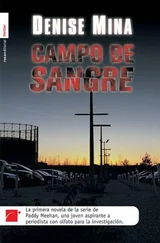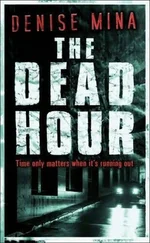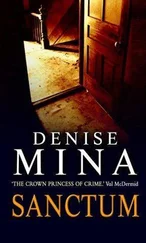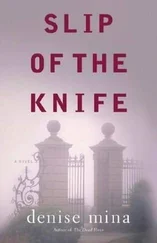"Ye could do that," said Maureen, "but I'd write to the Press Complaints Commission and it would be bad for your career. The murdered-married-man story is better in that shitty paper you work for but this story could be printed in a different paper. You know it could. It would be good for you."
"Will ye give us a picture of your floor?" she said, pointing at the bloodstains. It was all that was left of him.
"Fuck off."
Aggie Grey looked at the cigarette in her hand and thought about it. Finally she nodded. "Tell you what." She picked up her notebook. "You're lucky I'm freelance. Very lucky."
YELLOW DOORWAY
Black clouds covered the moon, intensifying the oppressive darkness. The soil beneath their feet was wet and soft. She had never seen Mark Doyle so animated. The orange lights from the drive filtered through the dark trees, flickering across his face, obscuring the marks and scars. For a moment he seemed desperately handsome and dashing, the hero who would save the baby and make things all right. She thought of Pauline as a small girl and how strong Mark must have seemed to her, how clean and uncomplicated in comparison to every other member of her sordid family. Together they looked up the hill to Gartnavel Royal Psychiatric Hospital.
It had been built as a fortified containment facility in the Scots baronial style, with battlements on the eaves and solid turrets at the corners. The extensive grounds contained a complex of hospital facilities. At the bottom of the hill were nurses' dorms and Gartnavel General, a long slab of a building eight stories high, looking like an airport hotel, separated from the psychiatric hospital by old trees. Although floodlit, the Royal seemed darker and sadder, hidden away like the mistakes and failures it contained.
She had desperately wanted to drink this afternoon after Aggie left and Leslie had gone to visit her mum. She'd wanted to sit and drink and contemplate her glorious behavior tonight. She had to go for a walk around the town to stop herself and now she was trembling, weak from resisting the desire. Soon it would all be over and she could stop thinking and thinking and thinking about it.
"There's a door around there." Doyle pointed, keeping his voice so low she had to strain to hear him. "It leads into an old kitchen. The back door'll bring you out to corridor F. His ward's F4. It's off it, towards the back. They're shutting this wing down as well so they've not put any security doors or cameras in."
"How do you know all this?" she asked.
"I checked it out this afternoon," he said, reticent and uncomfortable.
"After I phoned ye?"
He nodded.
"That was very good of you."
He glanced at her resentfully. "D'ye wantae chat," he said, leaning over her, "or d'ye wantae fucking do this?"
"Yeah." She looked back at the building as if she were paying attention and could be trusted. "Let's do it."
"Sure?"
"Aye. I want to."
"It's not too late. We can turn back."
"No," she said, trying to look serious. "I'm sure."
She didn't feel serious. She felt elated that the moment was here and almost past. She was ready to do it, ready to make someone cleave to her will, to take a chance and change the future.
"Ye've got the knife I gave ye?"
"Yeah," she said, patting her pocket. "Got it."
"Remember to wipe and drop it once you've done it, leave the knife there, don't take it with ye."
"Leave it there," she echoed.
"Leave it there. Come on."
Still crouching, Doyle led her expertly along a track through the bushes. The soil was damp from the rain and muddy foot tracks from earlier in the day were still distinct.
"Look" – he pointed down – "we're leaving shoe prints. Chuck your shoes after but don't go barefoot. A footprint's like a fingerprint. They can convict ye on it." She had cheap imitation Timber-lands on and they had recently molded to the shape of her feet. She didn't want to throw them away. He led her round the perimeter of the building to an unlit area and stopped. "This bit of the building's shut down already." He pointed to a large ground-floor window on the corner. An unkempt bush was growing in front of it and it was almost completely covered. "It's light in there but no one can see in. Even if a car came past. No one goes there. They'll not find him until morning."
There were no bars on the window. The pane of glass was broken in the low corner but the disused wing was so long abandoned that no one had bothered to patch it up. She looked up and, framed in gray stone, saw herself tap Michael gently on the back, him slipping gracefully to the welcoming floor and an end to all their troubles.
"You listening to me?"
"No one can see in," she said automatically. "They won't find him until the morning."
"By which time you'll be rid of the knife and your shoes. What else have ye to do?"
"Get an alibi and make a phone call from home."
"Don't say anything in the phone call, just chat about the court case tomorrow or something." He raised a finger and bent low to look her in the eye. "And don't mention me. Understand?"
"I understand."
"Not to anyone. Ye haven't told anyone, have ye?"
"Not a soul."
His fingernail was an inch from her eye and she understood it as a threat.
"Never tell anyone – anyone," he said, jabbing the air. He tilted his head back, looking down at her like an impatient owner warning a dog. "I'm here because of you."
"I know."
"Remember."
"I'll remember."
"Shut up," he muttered, and turned back to the window.
To their left a car pulled up the drive, the headlights licking the jagged gravel path in front of them before it turned and stopped at the front of the building. They waited until the driver got out of the car, locked up and entered the building, heard the door click shut.
"When do ye take the knife out?"
"In the room, when he's standing in front of me."
"Make sure he can't see ye take it out. He'll mibi panic." He turned and looked at her, a full-face stare, then nodded, pushing past her to lead her back to the path.
They parted without speaking. Maureen climbed out of the trees and walked towards the kitchen door, feeling more alive than she ever had before, hearing voices echoing up the hill from the open windows on the nurses' dorms, smelling damp soil, the coldness of the stone and lingering exhaust fumes. Doyle had jimmied the door to the kitchen earlier and it opened easily, fresh splinters of sweet-smelling wood pulling out of the lock as she slipped it open. She slid into the building and closed the door after her.
It was a large room, tall and long, smelling of dust and disinfectant. A black, empty patch of floor showed where the industrial cookers had been. Against the far wall a rickety stack of solid hospital wheelchairs gathered dust by the door. She hoped that Doyle had been sensible when he broke the lock and had worn gloves. She looked at her hands. She didn't have gloves on. It hadn't occurred to her to wear gloves, because it was hot, because she was leaving everything to Doyle. She'd have to be careful, watch what she touched the whole time – she couldn't leave her fingerprints all over the place. She stared at her hands, watched them shaking, and thought of what Doyle had said, that it wasn't too late. But it was too late: she'd imagined herself here too often before for another outcome to be possible.
Maureen lowered her hands and listened to the noise of the building. It was ten thirty and she would have to get home soon if she was to make a plausible phone call to anyone. The ceiling above creaked a low sigh and she heard a ticking in the pipes. She tiptoed along to the far door, leaving perfect prints in the dust, opened the door a crack and looked out.
Читать дальше
